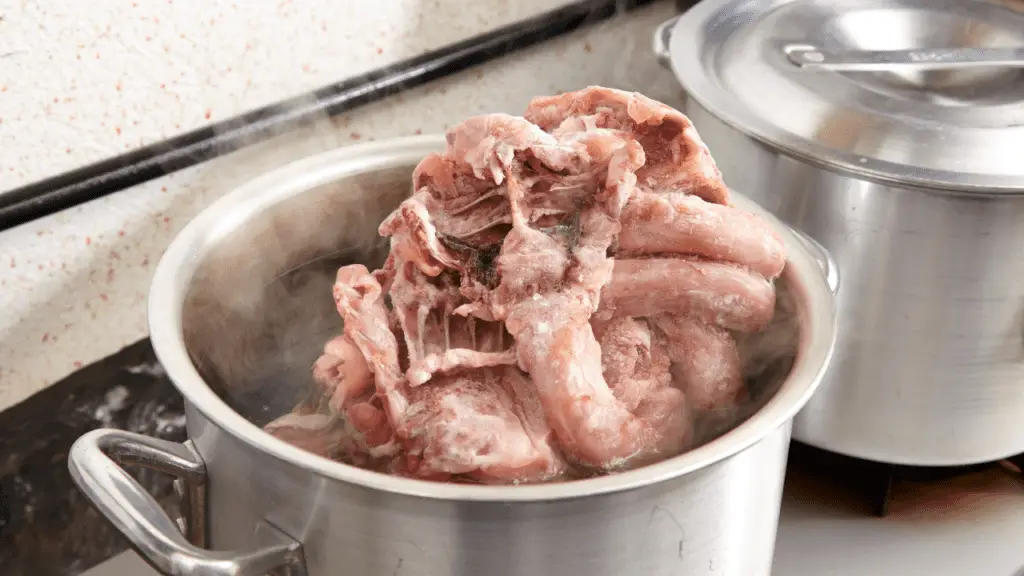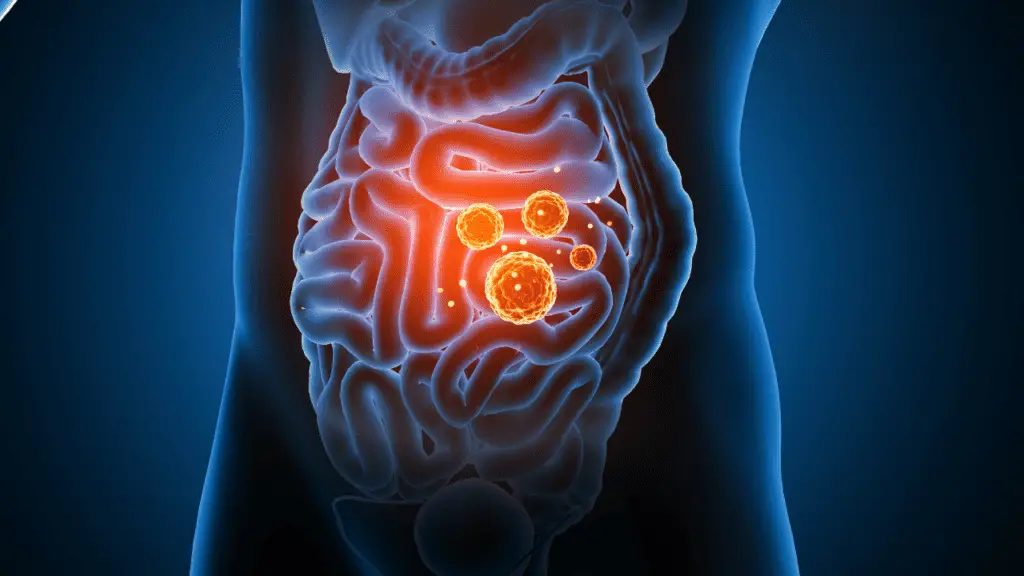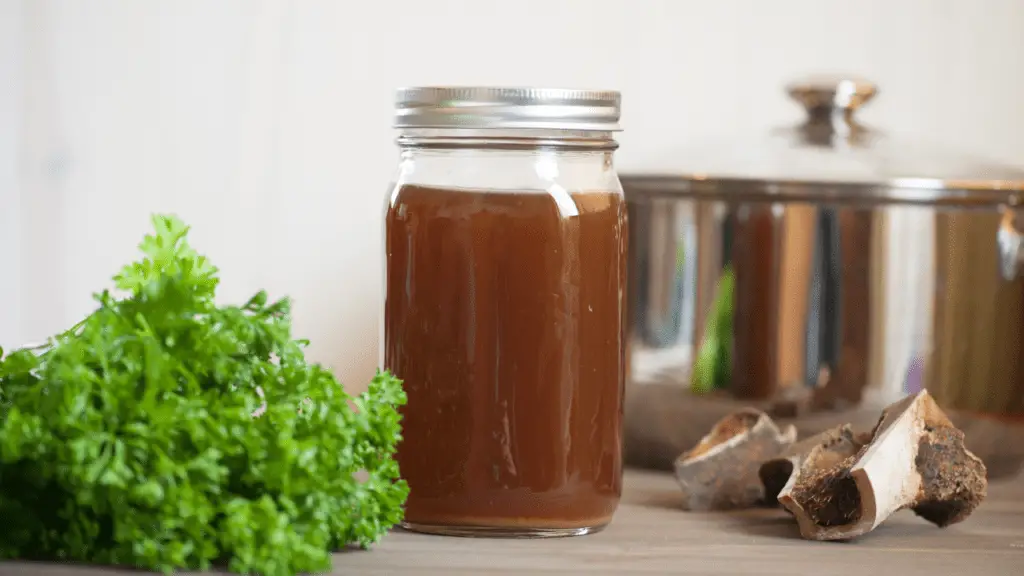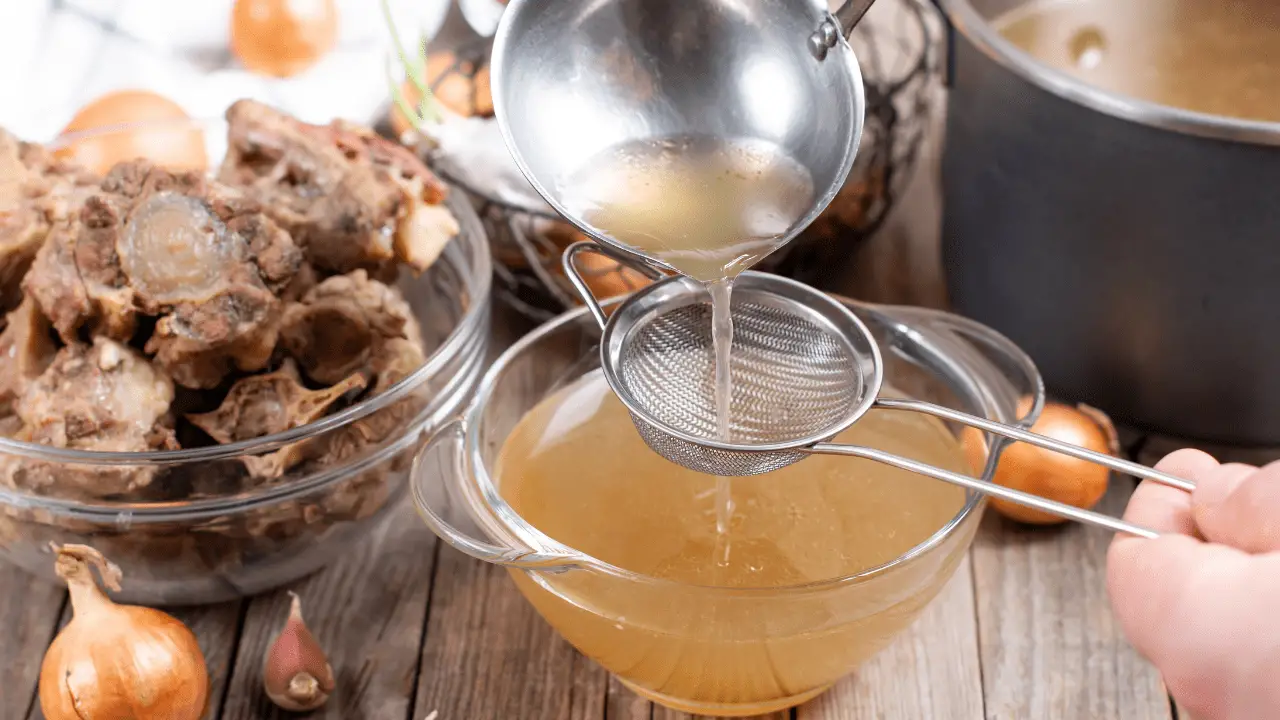All the new superfoods are creating a buzz in the health and wellness world. One of the frontline soldiers with a much-deserved hype is bone broth.
The health benefits of bone broth aren't new, nor is its addition to the human diet. Instead, bone broth has been around since the prehistoric era.
With its renaissance in recent years, is it worth the extra trouble to add it to your diet? Without further ado, let's find out.
What is Bone Broth?
First time hearing about bone broth? You'd want to know what it is before you switch to it from your morning cup of joe.
Bone broth is a soup-like nutritional beverage made from cooking animal bones, connective tissues, and meat in water. The broth takes 12-48 hours to simmer, and this slow cooking method releases compounds essential for gut healing. Therefore, the longer you cook, the more nutrition is packed in the stock.

The origin of bone broth as a healthy drink dates back to prehistoric times. Animal parts that could not be eaten as is were used in making a broth. Today, bone broth is made from almost every animal whose meat we eat. These include chicken, beef, mutton, pork, lamb, veal, and venison, to name a few.
Defining Gut Health
Don't just jump on the ‘bone broth for healthy gut' bandwagon. Instead, get the gist of it first. Let's look into the gut system and how does it work?
The digestive system's gut health is responsible for breaking down food and absorbing nutrients. The digestive system comprises multiple organs: the stomach, intestines, liver, pancreas, and gallbladder. Ultimately, these organs work in unison to keep gut health at an optimum level.
You may have read about the various functions of these organs in high school biology. Although, the gut microbiome may be an unfamiliar term. While bacteria are generally seen as harmful pathogens, good bacteria also exist in the digestive system. The balance of these bacteria is essential for a healthy gut.

The lack of an organ's functioning or imbalance in the gut flora can result in the onset of digestive symptoms. These symptoms can be temporary or part of a chronic condition, depending on what's happening inside the body.
What Happens When Your Gut Health is at Risk?
Your lifestyle impacts numerous things, including your physical health. Medications like NSAIDs, antibiotics, steroids, antacids, and birth control can destroy your gut microbiome. And, countless perpetrators can put your gut health at risk. Stress and diet are also critical factors that damage the gut lining.
So, what happens to your gut health due to these factors?
As discussed above, several elements can disturb the balance of the gut microbiome. The decreased production of good bacteria or increased harmful bacteria can wreak havoc on your gut health. The imbalance of gut bacteria causes many gastrointestinal conditions, such as IBS, IBD, acid reflux, heartburn, diarrhea, bloating, etc.
A leaky gut syndrome is a cause of many health concerns, including non-digestive issues. Our lifestyle impacts the permeability of the intestinal tract, and excess consumption of processed foods increases the porosity of the intestines. Consequently, more proteins escape through the intestinal tract into the bloodstream.
Now, you'd be questioning, “aren't proteins good for your body?” Proteins that travel through the intestinal tract shouldn't be absorbed into the blood. As a counterattack measure, the immune system reacts to these foreign particles, thus, causing inflammation.

Gut health issues can lead to many conditions for the digestive system and the entire body. Chronic inflammation in the digestive tract eventually begins damaging the whole body by affecting healthy cells.
Nutritional Components in Bone Broth
Undoubtedly, not many foods, or drinks, are compared to the nutritional powerhouse of a cup of bone broth. It's brimming with the goodness of essential nutrients that promote a healthy gut. What's more, it has nutritional compounds that we no longer attain in sufficient amounts from our everyday diet. These include:
Collagen
Collagen contains essential amino acids, primarily glutamine, needed to repair damaged gut walls. Collagen can heal the gut lining by tightening junctions. Over time, the gut lining can become porous, allowing food particles to pass into the body.
Since leaky gut results in malabsorption, collagen can increase nutrient absorption. Additionally, it aids digestion by breaking down proteins and carbs.
Glycine
Collagen doesn't form independently but with the help of a specific amino acid called glycine. Because of glycine's unique makeup, it helps create connective tissue in the gut lining.
Food particles reduce manifold with an improved gut lining due to healthy cells. As a result, this replaces the damaged connective tissues that wear away and lead to a leaky gut.
Glutamine
Each cell in our body needs fuel to energize and carry out its day-to-day functions. Similarly, each cell has a specific fuel source. For gut cells, this fuel source is glutamine.
Without glutamine, your body cannot produce gut cells, nor can they function optimally. Another reason is that it enables villi to act as a barrier for bacteria trying to enter the small intestines.
Proline
Similar to glycine, proline is another component that helps in the formation of collagen. With proline in your diet, the connective tissues in your gut strengthen. Meanwhile, with a more substantial gut lining, your digestive system will be able to absorb more nutrients and reduce the risk of autoimmune responses.
In addition, proline increases the production of beneficial bacteria and T-lymphocytes and regulates the secretion of IgA cells. All of these are integral components of a healthy gut.
Hydroxyproline
You're probably familiar with the importance of drinking water for a healthy body. When your skin is acting up, increasing water intake is one of the first things any health expert would suggest.
Likewise, your gut needs to stay hydrated, too. Bone broth contains hydroxyproline, an amino acid necessary for maintaining electrolyte balance in the gut. And we now know that several digestive problems occur due to electrolyte imbalance in the gut.
Benefits of Bone Broth for Gut Health
We've just discussed the functions of the gut, which include breaking down food and absorbing nutrients. A healthy gut indirectly holds the key to a healthy body. In other words, bone broth may be the secret ingredient you've been looking for to improve your health. With a plethora of nutrients in bone broth, it offers numerous advantages for gut health.

Let's dive into the benefits of bone broth for a healthy gut.
Reduces inflammation
Suffering from inflammation means saying goodbye to a healthy lifestyle. Diarrhea, constipation, abdominal pain, and fatigue; gut inflammation can bring a monstrosity of symptoms.
In normal circumstances, inflammation is beneficial for the body. The immune system reacts to harmful toxins, resulting in inflammation as a healing mechanism. However, when the immune system is consistently on red alert, it damages your gut due to chronic inflammation.
Bone broth aids in fastening the gut healing process, thereby reducing inflammation. With the decrease in inflammation, the onset of relevant symptoms decreases, too.
Repairs Damaged Gut Lining
Before going any further, let's talk about a leaky gut. When small holes form in the intestinal tract, it allows food particles and bacteria to escape. These foreign particles shouldn't be floating in the rest of your body, which is why it triggers symptoms.

Although the exact cause of the leaky gut isn't known, a common perception is that our food intake is a primary culprit. These foods include processed foods, fatty foods, and excess sugar intake. Over time your gut itself becomes damaged due to these elements.
To initiate the gut healing process, your body needs a nutritious diet, including gut-healthy foods. One of the types in this category also includes probiotics found in foods like yogurt, kefir, miso, etc. Bone broth is a food that falls in this category and can help repair damaged gut lining.
Increases Nutrient Absorption
It's not rocket science that a damaged gut won't absorb maximum nutrients from food. Undoubtedly, a leaky gut will lack nutrient absorption.
Malnutrition is less likely, but less nutrient absorption can cause many other health problems. Besides digestive symptoms from a damaged gut, you can expect fatigue to overtake your day.
Bone broth offers a two-angled benefit. For starters, it's healing your gut, meaning your nutrient absorption should return to normal. Secondly, it's nutritious, so you'll get loads from a single serving. Even during the gut-repairing process, your body needs energy. Since bone broth is easy to digest and nutritious, it's another bonus point for your gut health.
Boosts Protein Intake
You need protein for almost every bodily function. The reason is that your body breaks down protein into amino acids. Ultimately, the human body utilizes amino acids in protein synthesis.
But that's not all; they're the backbone from tissue repair to nutrient absorption. Without adequate protein intake, you'll fall prey to various diseases.
Bone broth is rich in protein. Although, that's not to say it's the only source of protein you should add to your diet. Plant-based proteins are just as essential to the body. Here's a pro tip: add protein-rich vegetables like bok choy and beans for a protein superstar broth.
Tips for Adding Bone Broth to Your Diet
Make homemade bone broth
Sure, store-bought bone broth is tempting. After all, you save long, painful hours of simmering the stock. However, nothing beats the flavors and nutrition you can get from making a homemade traditional bone broth.

To save you some time, make a batch and freeze it instead of spending every weekend in the kitchen making bone broth.
Opt for beef
Chicken bone broth is ideal for hydration. Although, if you truly want to reap the benefits of bone broth for gut health, choose beef. Beef bones are packed full of glycine in greater quantity than other bone broths. And they contain type 3 collagen, the premium compound for poor gut health.
Include diverse ingredients
You want to add as much nutrition and flavors to your bone broth to enjoy every sip. When shopping for the ingredients, buy a diverse range of bones. Pick out animal parts that hide the most nutrition, such as joints, feet, hooves, and knuckles.
For an extra flavor punch, short ribs work perfectly. Don't forget to add vegetables, herbs, and spices for a tastier experience!
Drink it early morning
You can drink bone broth any time of the day; it all depends on your preference. But here's the thing – experts swear by drinking it early morning on an empty stomach if you're tackling gut issues. An early morning bone broth cup can boost your digestive system for the rest of the day.
Wait for the results
Don't see any improvements in your digestive symptoms despite drinking bone broth the past two days? Gut health takes time to get back on track. Typically, it takes a week for bone broth to show results. That's when your damaged gut starts to improve gradually. Thus, keep drinking that bone broth daily and give it a few days before giving it up.
Final Words
We've established that bone broth is incredibly nutritious for your health. While it can work wonders for your gut health, you must maintain a balanced diet.

Let's not forget that homemade broth is far superior to store-bought quick fixes. To keep your gut health in optimum shape, start your day off with a cup of bone broth.





